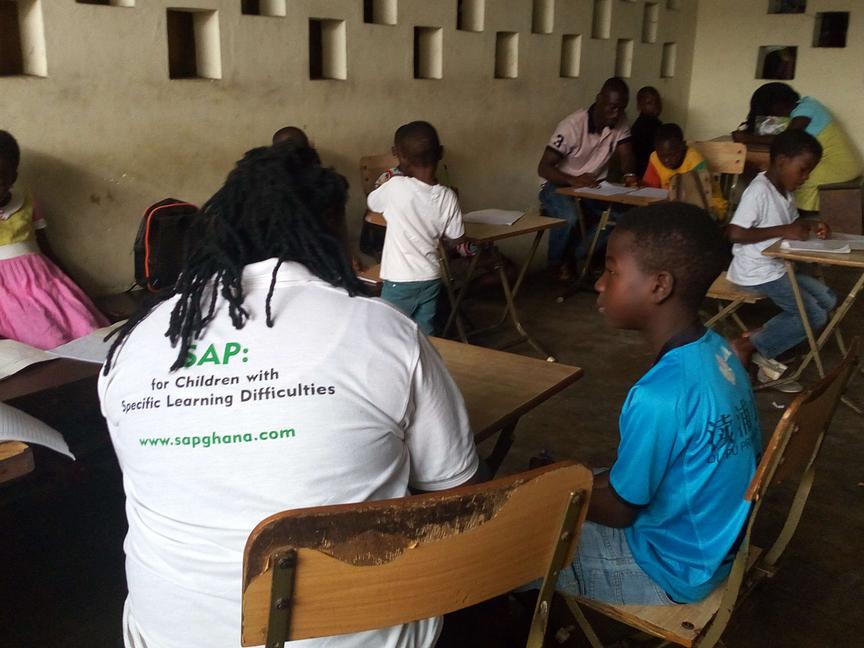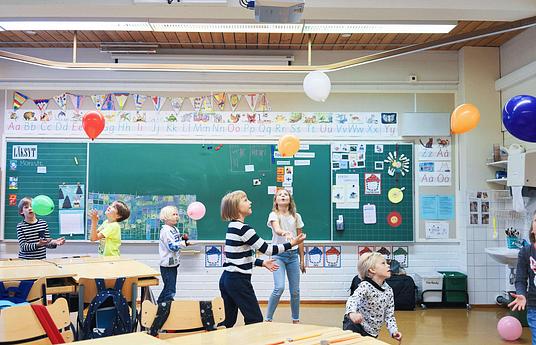Special Attention Project (SAP) is recognised in Ghana as the leading grass roots non-governmental organisation working for the rights of children with Specific Learning Difficulties. SAP was established in 2007 to respond to the learning needs of children with learning difficulties after a survey conducted in Ghana in 2005 revealed that a large number of out-of-school children on the streets showed symptoms of learning difficulties. These children face multiple forms of educational barriers which lead to their exclusion from society and school. Discriminatory attitudes due to general lack of awareness and recognition of learning difficulties, as well as absence of accommodative resources in mainstream schools combine to hinder children with learning difficulties from reaching appropriate levels of educational attainment.
Many children showing symptoms of Specific Learning Difficulties, such as Dyslexia (difficulties in reading and writing); Dyscalculia (difficulties in mathematics); Dyspraxia (difficulties with movement and coordination); and Attention Deficit Hyperactivity Disorder (ADHD) are in school but risk failing to acquire basic literacy and numeracy skills or risk dropping out. According to data, about 20% of out-of-school children in Ghana shows signs of learning difficulties. Parents and caregivers often give different interpretations to their children's failure to perform well, and seek, for example, spiritual help or resort to punishing. Teachers and educators are barely in a position to match instructional formats to the learning needs and potentials of children with learning difficulties due to limited capacity and absence of inclusive systems in mainstream schools despite the launch of an Inclusive Education Policy by Ghana’s Ministry of Education in 2016.
SAP’s innovative learning solutions focus on improving learner outcomes and preventing school dropout of children with learning difficulties. The organisation’s individualised has a track record of collaboration with the Special Education Division of Ghana Education Service, the Department of Social Welfare and active involvement in movements for disability and education rights. SAP’s learning interventions for children with learning difficulties over the past 10 years have proven that when learning difficulties are identified early and children are given the right interventions, they are able to learn to achieve their educational dreams.
SAP offers direct learning support, including assessment and the delivery of individualised learning plans that align with the learning needs of children with learning difficulties. This support also includes vacation classes conducted to help children with learning difficulties to learn better. The organisation builds the capacity of teachers, educators and schools to have a good understanding of learning difficulties and inclusive education to enable them to implement inclusive interventions in classrooms and deliver remedial teaching. Also, with major changes ahead in Ghana's education policy on inclusiveness, it has never been more important to empower parents and community members with information. SAP offers counselling services for parents and provides customised and instructive information on learning difficulties and inclusive education to enable parents become effective advocates for their children, develop positive attitudes and change their behaviour towards their children. These awareness-raising sessions are conducted through face-to-face interactions during parents and teachers' association (PTA), religious groups and social group meetings, as well as mainstream and social media campaigns. SAP recognises that addressing discrimination and promoting inclusion of children with learning difficulties cannot be accomplished without data for evidence-based advocacy. The organisation thus collects data on children with learning difficulties to influence and strengthen policy decisions on inclusive education. As part of SAP's advocacy drive, the organisation mobilises parents of children with learning difficulties into self-help groups, with the aim of empowering them to help their children to learn and become effective advocates for their children's educational rights.


